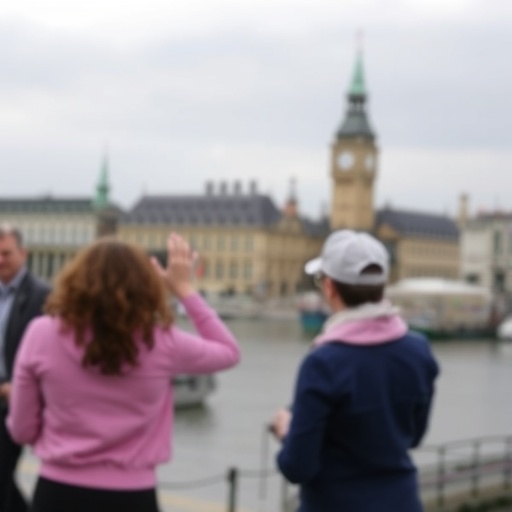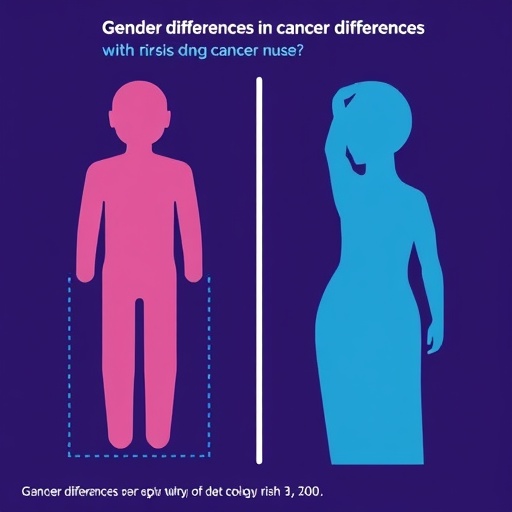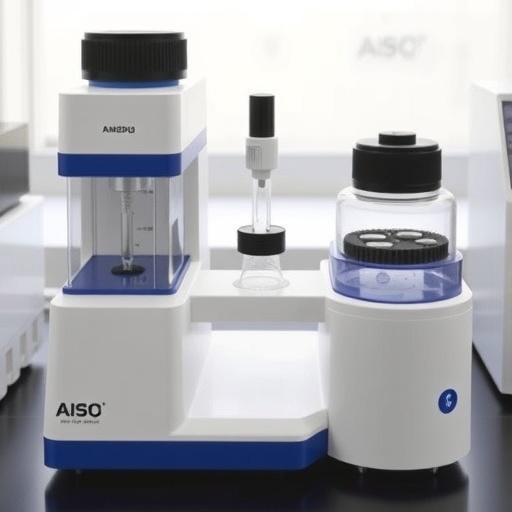PROTECT YOUR DNA WITH QUANTUM TECHNOLOGY
Orgo-Life the new way to the future Advertising by AdpathwayIn the evolving landscape of healthcare, the challenges surrounding hospital readmissions post-stroke have garnered significant attention from researchers and practitioners alike. A recent study spearheaded by a team of distinguished researchers, including Yu, H., Yu, J., and Jiao, J., sheds light on the critical role of family caregivers in mitigating the risks associated with hospital readmissions for stroke survivors. The findings, published in BMC Health Services Research, present a comprehensive analysis of integrated strategies aimed at enhancing support and home care, ultimately resulting in better health outcomes for these individuals.
Hospital readmissions serve as a significant indicator of the quality of care provided within the healthcare system. For stroke survivors, these readmissions can lead to a downward spiral of health complications, increased healthcare costs, and a diminishment in overall quality of life. Addressing this issue entails not only the medical management of stroke aftermath but also a multifaceted approach that involves family caregivers—those unsung heroes who play an integral role in providing care within the comfort of their own homes.
The research team meticulously examined various facets of home care provided by family caregivers. Their work focused on how these caregivers can implement integrated strategies tailored to meet the unique challenges faced by stroke survivors. The study underscores the significance of caregiver education and training, aiming to equip families with the tools necessary to recognize warning signs and manage complex care tasks effectively. Such preparation not only empowers caregivers but also fosters a partnership between families and healthcare professionals.
In the context of a post-stroke recovery, the emotional and physical strains experienced by caregivers can be overwhelming. The research underscores the need for developing supportive ecosystems that alleviate these pressures. Effective communication and collaboration between caregivers and healthcare teams are paramount. By establishing clear channels for dialogue, care plans can be adapted swiftly to address the evolving needs of stroke survivors, thereby reducing the likelihood of unnecessary readmissions.
An intriguing aspect of the study is the identification of holistic care strategies that incorporate both medical and non-medical support. Addressing the psychological and social dimensions of stroke recovery can yield transformative results. Caregivers who are encouraged to engage in community support activities, such as peer groups or counseling services, can significantly enhance their ability to provide effective care while simultaneously attending to their own well-being.
The researchers employed a rigorous methodology, utilizing a combination of qualitative interviews and quantitative data analysis. Through direct engagement with caregiver experiences, the study revealed key themes that link caregiver support to reduced readmissions. These themes include the importance of understanding the nuances of stroke recovery, building resilience among caregivers, and fostering a sense of agency in both caregivers and stroke survivors.
Moreover, the findings provide robust evidence for healthcare policymakers seeking to develop programs that support caregivers. By implementing structured training programs and resources, communities can significantly improve the overall health outcomes for stroke survivors. The study emphasizes that investing in caregiver education is not merely a supportive measure but rather a crucial component of effective stroke rehabilitation strategies.
As healthcare systems worldwide grapple with the burden of chronic disease management, the implications of the study extend beyond stroke care. The model proposed by Yu and colleagues can serve as a prototype for approaching the care of patients with various chronic conditions. By prioritizing family dynamics in care strategies, there is potential to foster a more unified approach to tackling readmission rates across multiple demographics.
A striking feature of the study is its potential for scalability. The integrated strategies identified can be adapted to meet the diverse needs of families across different socio-economic backgrounds. This versatility highlights the importance of culturally competent approaches that consider the unique circumstances of each caregiver and stroke survivor duo, thus promoting equity in healthcare access and outcomes.
While the study shines a light on promising practices, it also invites further inquiry into the long-term impacts of the proposed strategies. Understanding how sustained support affects the trajectory of stroke recovery over time remains an essential avenue for future research. As healthcare continues to evolve, maintaining an adaptive approach to caregiver involvement will be critical in enhancing patient outcomes.
In conclusion, the research conducted by Yu, H., Yu, J., and Jiao, J. illustrates a transformative approach to stroke recovery through family caregiver support. Their findings emphasize the intertwined relationship between caregiver education, community involvement, and reduced hospital readmissions. As we envision the future of healthcare, integrating these insights into policy and practice can pave the way for a more sustainable and compassionate healthcare system.
The implications of this groundbreaking research are profound, urging stakeholders within the healthcare sector to reconsider how we perceive and implement caregiver support in recovery protocols. As we strive for innovations in care practices, the integration of family dynamics will undoubtedly play a crucial role in shaping the future landscape of stroke recovery and beyond.
Subject of Research: Integrated strategies of support and home care by family caregivers for prevention of hospital readmissions among stroke survivors.
Article Title: Integrated strategies of support and home care by family caregivers for prevention of hospital readmissions among stroke survivors.
Article References:
Yu, H., Yu, J., Jiao, J. et al. Integrated strategies of support and home care by family caregivers for prevention of hospital readmissions among stroke survivors.
BMC Health Serv Res (2025). https://doi.org/10.1186/s12913-025-13772-9
Image Credits: AI Generated
DOI:
Keywords: Hospital Readmissions, Stroke Survivors, Family Caregivers, Integrated Care, Home Care, Healthcare Policy, Caregiver Education, Chronic Disease Management, Quality of Life.
Tags: BMC Health Services Research findingschallenges faced by family caregiversenhancing home care for stroke survivorsfamily caregiver support strategieshospital readmissions after strokeimproving post-stroke care effectivenessintegrated healthcare approachesmultifaceted care for stroke recoveryquality of care in healthcare systemsreducing healthcare costs for stroke patientsrole of family caregivers in recoverystroke survivor health outcomes


 5 hours ago
5
5 hours ago
5





















 English (US) ·
English (US) ·  French (CA) ·
French (CA) ·